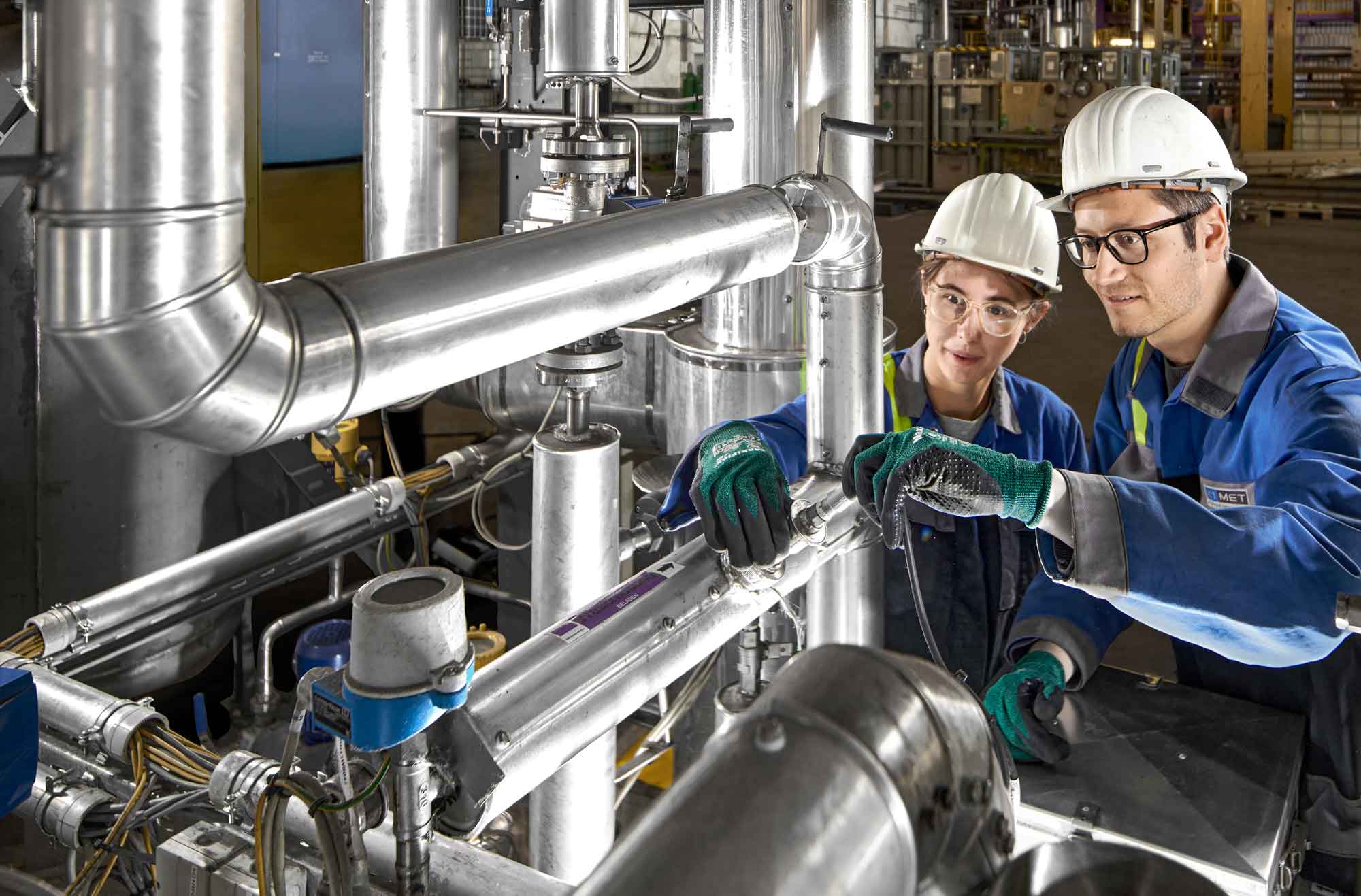The decarbonisation of industry is an important lever in achieving European and national climate targets and at the same time represents one of the biggest challenges. Industry is responsible for almost 29% of energy consumption in Austria. The energy-intensive iron and steel, cement and chemical sectors in particular require very high temperatures for their production processes and are responsible for causing significant greenhouse gas emissions.
Irmela Kofler is head of the Decarbonisation and Sector Coupling research area at the metallurgical competence centre for ferrous and nonferrous metallurgy K1-MET in Austria and focuses specifically on these industrial processes. “We are supporting industry on the path towards CO2-neutral production and have two priorities here”, explains the expert. “The first one is to avoid CO2 emissions by using alternative energy sources, such as hydrogen. Secondly, wherever CO2 emissions are indeed unavoidable, we want to generate valuable material from them.”
The native of the Austrian city of Linz was fascinated by large industrial plants even as a child. Her enthusiasm for technology and exciting chemistry lessons at school provided the motivation for her to pursue a technical chemistry degree, initially with the aim of going into pharmaceutical research. But working on milligram scales in the lab was not the right thing for her after all, and so Kofler did a doctorate in process engineering. Kofler remains convinced that “the earlier they come into contact with technical topics and the more these become a matter of course, the more likely it is that girls will have the confidence to have these professions on their shortlist”.
Demo project in the steel and cement industry
The ZEUS (Zero Emissions throUgh Sector Coupling) lead project was launched in 2023 to demonstrate the production of green hydrogen and the recycling of renewable gases and liquid hydrocarbons in an industrial environment. K1-MET is the consortium leader for the project, with Irmela Kofler acting as the supervisor and having overall financial responsibility for the major research project. ZEUS is focused on the steel and cement industries, where decarbonisation is difficult. The objective is to develop and provide a pilot demonstration of a comprehensive holistic concept for climate-neutral production: from the production and processing of green hydrogen under fluctuating process conditions, through to capturing CO2 from industrial waste gases and converting it into valuable hydrocarbons (e.g. synthetic natural gas) that can be stored. Different technologies (6 MW PEM electrolysis, CO2 capture, catalytic methanation, CO2 electrolysis) are being researched, tested and linked to form process chains for this in an industrial environment. “The holistic CO2-neutral process chain, which is demonstrated using the example of the steel and cement industries, is also transferable to other branches of industry. We compare different technologies so as to highlight the most energy-efficient way,“explains Kofler.
In addition to expanding renewable energy production, another important focus involves coupling the energy industry with power-intensive industries. Sector coupling aims to convert surpluses from renewable electricity generation into storable energy carriers and contribute towards stabilising the energy system. Capturing CO2 and converting it into storable products is the central approach in those processes where CO2 emissions are unavoidable. The ZEUS consortium1 is made up of partners from the energy sector, industry and research and covers the entire value added chain (plant engineering, technology development, production, etc.). Through trials at two industrial sites, the project will contribute towards accelerating the adoption of climate-friendly technologies in practice and towards entrenching the concept of sector coupling in Austria.
1 Project consortium: K1-MET GmbH, Energy Institute at the Johannes Kepler University Linz, Institute of Organic Chemistry – Johannes Kepler University Linz, GIG Karasek GmbH, Montanuniversität Leoben – Chair of Process Engineering for Industrial Environmental Protection, Rohrdorfer Zement – Zementwerk Hatschek GmbH, TU Wien – Institute of Chemical, Environmental and Bioscience Engineering, Verbund AG, voestalpine Stahl GmbH, WIVA P&G – Hydrogen Initiative flagship region Austria Power & Gas

